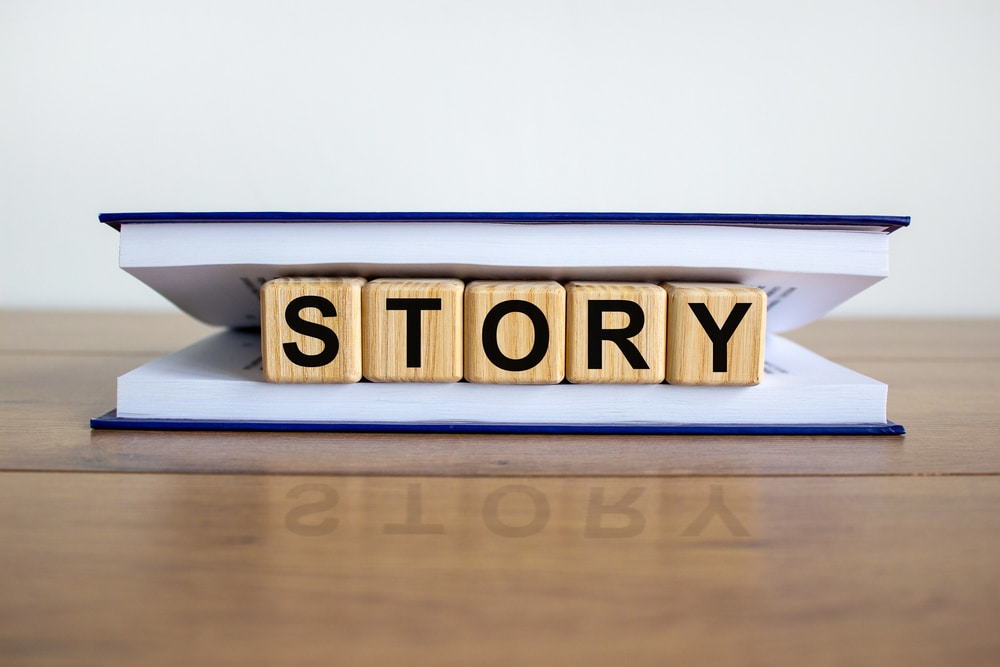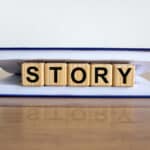
1) Why the narrative essay still matters
A narrative essay remains one of the most revealing forms of composition because it is a human-centered structure — a story first, followed by analysis. Unlike expository papers, narrative writing allows feelings, sequence, consequence, irony, regret, joy, and sudden realization. The reader doesn’t just receive information — they experience a journey. The narrative essay is not merely an English assignment; it is a thinking tool, a meaning-making machine. When you narrate, you notice — and noticing is a rare modern skill.
Writers who practice personal narrative also reap psychological benefits: reflection enhances emotional regulation, consolidates autobiographical memory, and improves executive reasoning. Research shows reflective writing can help people integrate past events into coherent identity formation (Pennebaker & Smyth, 2016). In this sense, the story is not entertainment — the story is mental health maintenance.
2) Story as the format that strengthens memory
A plot — even a tiny one — creates cognitive glue. Episodic memory is stored differently than facts. So when a student writes a narrative essay, they are actually improving long-term memory retention — because the brain stores story structure more robustly than abstract notes.
That is why students often remember a teacher’s personal example more than a list of bullet points. Human memory evolved to retain lived experiences, not scattered informational fragments. The narrative essay rides that wiring.
3) The emotional punch that makes the genre powerful
Emotion is the amplifier of meaning. A narrative essay is uniquely capable of weaving emotional tone with external events. When a reader feels the tension — the waiting room before test results, the silence before someone says “I’m leaving,” the slam of a front door — memory locks in.
Students who write repeatedly in narrative form become better persuaders in every genre afterward. They stop summarizing and start showing. They stop explaining and start implying. They move from telling to demonstrating — the core shift that marks professional-grade voice.
4) How conflict and stakes shape narrative quality
All stories — even micro-stories — hinge on tension. Without stakes, readers drift. A narrative essay is not just a chronological recounting. It is a before-and-after transformation squeezed through conflict or contrast.
Example pattern:
- I used to believe X
- Then Y happened
- Therefore, Z became my new understanding
It’s deceptively simple — but this is how meaning gets welded to memory.
This is also the structure at the root of the classic “life lesson narrative”: the bike crash that taught caution, the first failure that taught humility, the unexpected kindness that taught competence is not enough without empathy.
5) Narrative as a tool for adult insight
Adults often think narrative writing is just for school. No — the narrative essay is the grown-up instrument for sense-making. Journaling, memoir, professional founder stories, TED-style talks — these are narrative essays delivered aloud or published in book form.
Look at major autobiographies — Michelle Obama’s Becoming, Matthew Perry’s Friends, Lovers, and the Big Terrible Thing — readers don’t buy them for “information.” They buy them to participate in the transformation. Reflection is the currency. Specific moments are the payment.
The genre is the same whether the writer is 17 or 70.
6) Narrative essays sharpen critical thinking more than informational summaries
This is counterintuitive. Teachers often think narrative writing is the “easy” genre. It isn’t.
Narrative requires:
- scene selection
- causal sequencing
- emotional precision
- logical retrospection
- sensory specificity
- editing for implication
Each of those is harder than merely explaining facts.
In fact, a narrative essay teaches argument indirectly — because the writer selects scenes to make a point rather than claiming the point directly.
Example:
A student writes about not getting a college acceptance letter.
That story is the argument about disappointment, uncertainty, systemic competition, future planning, parental expectations — without needing to say any of those words.
7) The seven unforgettable life lessons the narrative essay trains
Below are seven deep competencies — life skills — that consistent narrative essay practice strengthens:
- Emotional regulation — revisiting memory reorganizes stress responses.
- Sequencing — structuring events improves executive planning.
- Empathy — telling experience requires considering the audience.
- Agency recognition — memory becomes less “fate” and more “I chose.”
- Pattern detection — stories reveal repeated outcomes and habits.
- Identity building — a narrative that integrates the past and present self.
- Meaning extraction — events become insight, not clutter.
These seven are why the genre is not a school artifact — it is a lifelong methodology.
8) Strategies to write better narrative essays right now
Here are three proven craft levers — transformative but straightforward:
Cut generalization
Good narrative = specificity. Instead, I was nervous, and my hands shook so badly I had to use both thumbs to press “send.”
Shift tense strategically
Past tense for frame. Present tense for heat. The best narrative essays often pivot mid-paragraph into the present tense to ignite immediacy.
Use implication, not assertion.
Example: Instead of writing “that was the moment I realized I was alone,” show the reader you were alone — let them form the conclusion.
9) Narrative essays make readers feel inside the moment
The narrative essay is not merely a recounting of what happened; it is the deliberate reliving of sensation so the reader involuntarily mirrors the internal shift.
When you describe sensory detail — the glue stick smell in the elementary classroom, the grit of sand on a cafeteria floor, the bright hum of an MRI machine — you awaken the brain’s sensory cortex in the reader. That neural mirroring is the pulse beat of grand narrative.
Narrative is not “story time.” It is a co-experience.
10) Final takeaways
The narrative essay is powerful because it allows humanity to give meaning to random life experiences. It helps the writer extract wisdom from chaos — and gives the reader permission to identify their own internal wisdom through the mirror of someone else’s experience.
Story is the oldest educational technology in human history.
We didn’t evolve to memorize lists.
We evolved to tell what happened — and what changed.




